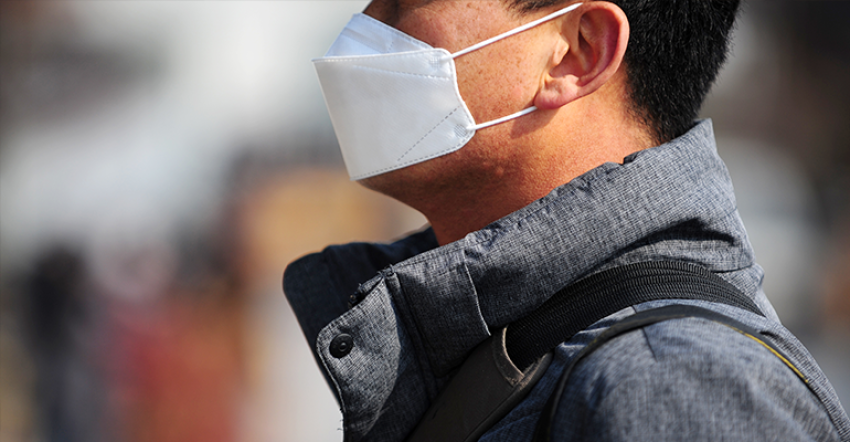
As COVID-19 spreads globally, and the threat of widespread community transmission becomes more real, it has become clear the new coronavirus poses not only a major health risk but a significant threat to the livelihoods of millions of workers.
The unfolding crisis has led to rising pressure from companies to protect profits at the expense of working people and their communities. In the face of this pressure, it is important progressive forces raise demands that place the welfare of workers first.
Sickness benefits and leave
In announcing the government’s response to COVID-19 on March 11, Prime Minister Scott Morison indicated workers without leave entitlements might be able to access the Sickness Allowance. This is not a real answer to the challenges facing working people.
Sickness benefits are wholly inadequate and would cast thousands of people into poverty. The government’s proposal highlights the need for all welfare payments to be dramatically raised.
The most vulnerable section of the workforce are the 3.3 million casual workers who do not receive sick or other paid leave.
This lack of leave pay poses a major health risk to the community: experiences internationally show that if we are to avoid the hospital system being overwhelmed it is vital that individuals who are potentially infected, or have had their infection confirmed, self-isolate.
However, casuals face an impossible choice of either not working for weeks, and being ruined financially, or working, and potentially infecting workmates and other individuals who they come into contact with.
Industrial relations minister Christian Porter's comment on March 10, that "many people would have already made provisions for that because, of course, the purpose of casual employment is that you’re paid extra in-lieu of the types of entitlements" reflects the government’s total indifference to the real misery casual workers and their families will face as COVID-19 spreads.
It also exposes the government’s desire to appear to be addressing the challenge while doing nothing.
The Australian Council of Trade Unions (ACTU) has called on the federal government to legislate that casual workers who have to self-isolate receive two-weeks' pay. This represents the time period that, in mild cases, is seen to be necessary to allow the virus to develop and those infected to recover.
While this is an important demand, it is most likely an insufficient amount of leave, at least for some workers.
Some workers will contract more serious cases of COVID-19 and potentially be hospitalised with severe respiratory problems, leaving them without an income after the two-week period to pay rent or mortgages and feed their families.
Moreover, it is unclear how long the recovery time really is, with studies in China suggesting people who have recovered from COVID-19 symptoms can remain infectious for days.
Casual workers, like other workers, may also need to be carers for family members in self-isolation or those unable to attend school due to closures and require more than two-weeks’ leave.
No job shedding
Economies globally have started to slow. This is most notable in China, but the slowdown is expected to continue, particularly if widespread community transmission occurs in more countries.
The slowdown cannot be simply blamed on COVID-19; it is an exacerbation of underlying weaknesses in the global economy, which has seen ongoing periods of slow growth in the wake of the 2007-08 Global Financial Crisis.
While the impact of COVID-19 on the economy has primarily been in education and tourism, its effect can be expected to spread to other sectors.
The impact of this slowdown can be seen in Qantas’s announcement that it will be reducing flights, with the aim of lower costs and reducing excess capacity.
While reducing capacity in the face of an expected decline in demand makes sense, Qantas is also saying it has about 20,000 workers who are “surplus to requirements”. This raises the spectre of workers being asked to take unpaid leave and, potentially, mass layoffs — and not only at Qantas.
Any such mass layoffs are an attempt to bolster profits at the expense of the lives of thousands of workers. They are not only thoroughly immoral, but risk exacerbating and deepening the downturn.
Profitable companies should be legally prevented from sacking workers — this should be the case anyway, but this measure is particularly vital in the face of a widespread downturn.
Any reduction in the need for labour hours must be addressed via the introduction of a sliding hours-wages scale, where the working hours of all workers at a company are reduced equally to meet the lower work requirements and the hourly wage rate is raised to ensure no worker is left worse off.
Companies that argue they face bankruptcy should have to open their books to unions and the government, with aid provided to enable them to keep operating where deemed necessary.
The government’s response of COVID-19 must be guided by the principle that workers’ lives are worth more than company profits.
[Lisbeth Latham is a union activist and trans feminist writer. She blogs at Revitalising Labour and is a contributing writer with Irish Broad Left.]